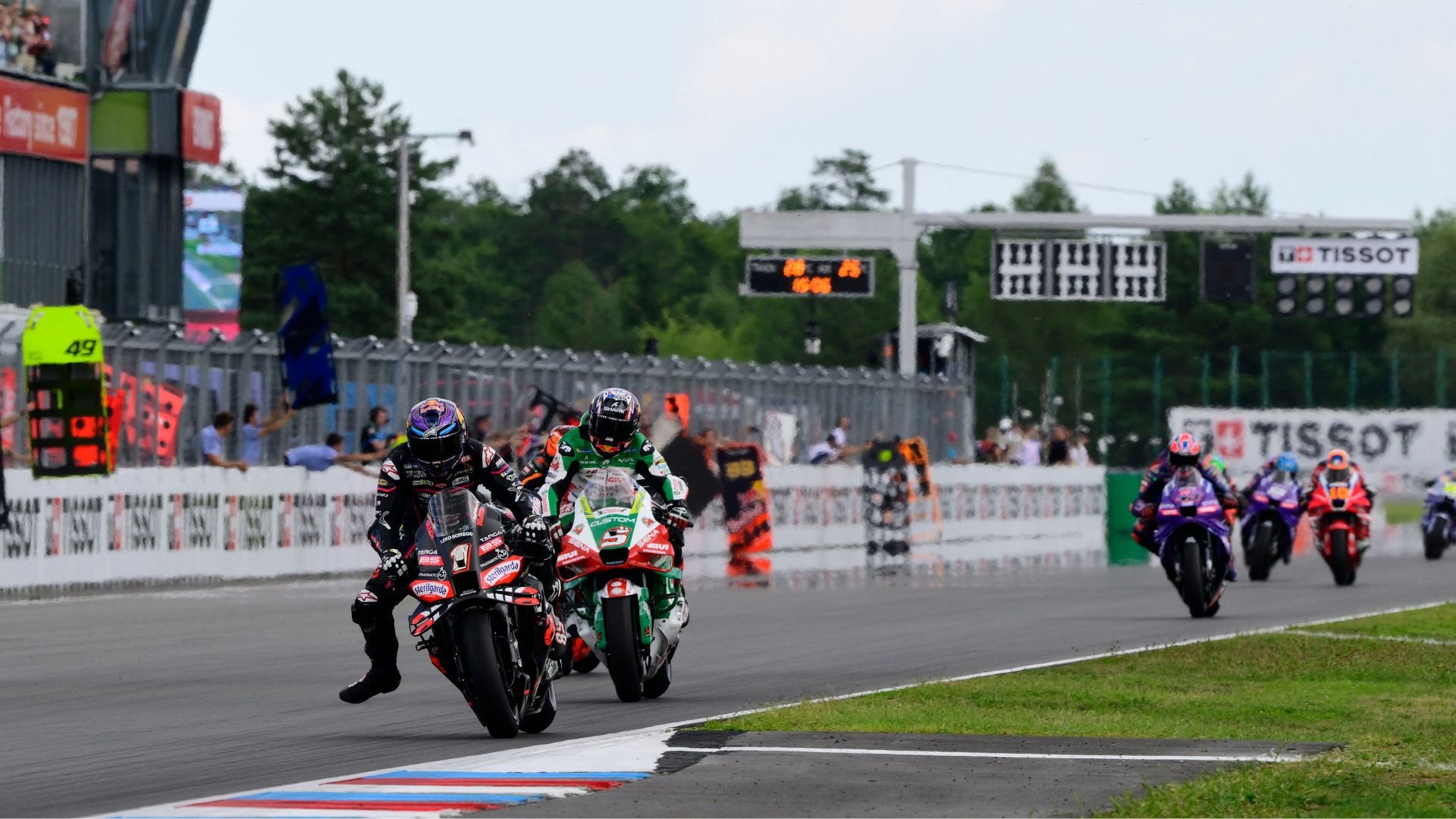
Photo: Gold & Goose / Red Bull Content Pool
MotoGP confirms full switch to 100% non-fossil fuels from 2027

MotoGP has officially announced a full transition to 100% non-fossil fuels across all Grand Prix classes starting with the 2027 season. This major shift marks a historic move towards greener racing, as the championship aims to reduce its environmental impact and lead by example in the global fight against climate change. With biofuels and e-fuels set to replace fossil-based options, and a scientific testing method in place to ensure compliance, the sport is embracing a cleaner, more responsible future without sacrificing performance
F1 & MotoGP news to your inbox every day.
MotoGP has announced a bold and exciting new direction for the future of motorcycle racing, as the sport plans to fully switch to 100% non-fossil fuels across all classes starting from the 2027 season. This decision represents a significant step forward in the sport’s commitment to sustainability and reducing its environmental impact. The change will apply to every category in the MotoGP World Championship, including Moto2 and Moto3.
This decision was made after several meetings held by the Grand Prix Commission, which is responsible for overseeing the rules and development of the sport. The commission includes some of the most influential figures in motorcycle racing, such as FIM President Jorge Viegas, Dorna Sports CEO Carmelo Ezpeleta, and IRTA Chairman Mike Webb. After months of discussion and planning, the commission agreed that the time had come to take a major step toward a greener future for the sport.
Currently, most fuels used in MotoGP are still fossil-based, meaning they are made from underground oil reserves that formed millions of years ago. These fossil fuels contribute significantly to carbon emissions and global warming because when they are burned, they release carbon dioxide that has been trapped underground for ages. This adds new CO₂ to the atmosphere, which is one of the leading causes of climate change.
Non-fossil fuels, by contrast, are made from renewable sources. Under the new MotoGP regulations, there are two main types that will be allowed: biofuels and e-fuels. Biofuels are produced from organic materials such as crops, agricultural waste, or even algae. These sources absorb carbon dioxide while they grow, and when they are used as fuel, they release roughly the same amount of CO₂ back into the air. This means they don’t increase the overall carbon levels in the atmosphere. E-fuels, on the other hand, are synthetic fuels created by capturing carbon dioxide directly from the air and combining it with hydrogen, usually with the help of renewable energy sources like wind or solar power. The result is a clean-burning fuel that is not only carbon neutral but also does not rely on limited resources like crude oil.
To ensure that the fuels used from 2027 onwards are truly non-fossil in origin, MotoGP will introduce the use of the Carbon-14 test, also known as the C14 test. This scientific method is a reliable way to determine whether a substance is fossil-based or derived from more recent organic sources. Carbon-14 is a naturally occurring isotope of carbon that exists in all living things. Over time, C14 slowly decays. In fossil fuels, which are millions of years old, the C14 has completely disappeared, meaning none remains. In contrast, fuels made from modern materials, such as plants or CO₂ captured from the air, still contain Carbon-14 in amounts similar to what is found in today’s atmosphere.
The C14 test works by measuring the proportion of Carbon-14 in a fuel sample and comparing it to the standard level found in the atmosphere. If the levels closely match (within a small allowed margin), the fuel is confirmed to be of non-fossil origin. This method provides a scientific and dependable way to verify that the fuels used in racing meet the new environmental standards and are not derived from ancient fossil sources.
This is not the first step MotoGP has taken toward sustainability. In 2024, the championship introduced a rule requiring all fuels to contain at least 40% non-fossil content. That marked the beginning of the sport’s transition to cleaner energy sources. The results from that initial phase have been positive, and the experience gained has helped to shape the next stage of the plan.
However, there is still much work to be done before the full switch in 2027. Fuel suppliers, teams, and engineers will need to develop and test new fuel blends that not only meet the strict non-fossil requirements but also deliver the high performance required at the top level of motorcycle racing. This challenge is expected to drive innovation in the fuel industry and could lead to new developments that benefit both motorsport and everyday transport in the future.







